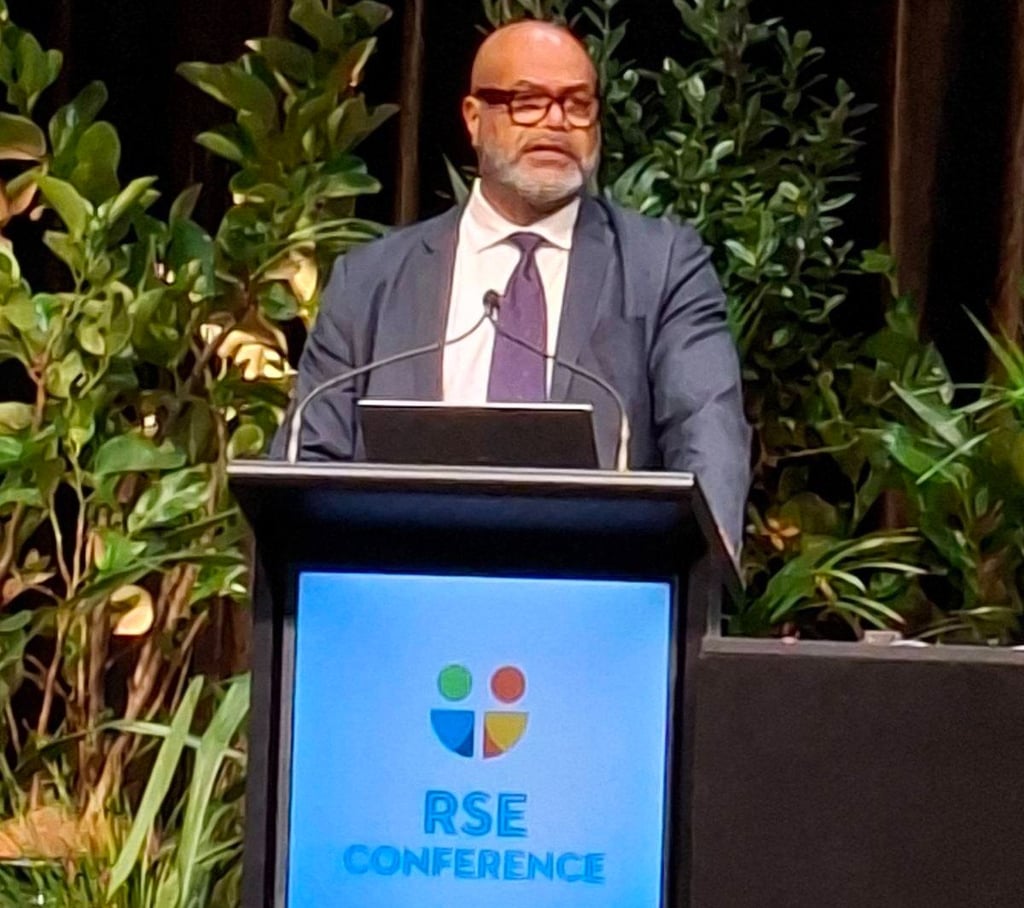Fiji Pushes for Expansion of RSE Program and Inclusivity in Labour Mobility
FIJI NEWS


Fiji’s Permanent Secretary for Employment, Maritino Nemani, has called for a strategic expansion of the Regional Seasonal Employment (RSE) program, while also highlighting critical challenges that could affect its long-term sustainability. He made the remarks during a keynote address at the RSE conference in Wellington.
Addressing international delegates, PS Nemani said 2025 marks a decade of Fiji’s involvement in the RSE program — a milestone that reflects “substantial experience, proven commitment, and valuable insights” that now place Fiji as a key partner in Pacific labour mobility.
He acknowledged New Zealand’s investment in this partnership, especially its funding support for Fiji’s first Country Liaison Officer.
“This support demonstrates a shared vision for effective program management and will greatly enhance our operational capacity,” Nemani said.
Fiji’s unique advantage lies in its village-based selection model, which he noted has resulted in stronger team performance and reliability. With more than 700 qualified candidates ready for deployment and strong institutional support through the National Employment Centre, Fiji has shown clear readiness for responsible expansion.
He also emphasized that Fiji only deploys unemployed workers from rural areas and villages, a model introduced after the coalition government took office in 2023. Fiji also stands out with a zero worker disengagement rate in New Zealand so far.
Fiji’s Competitive Edge:
PS Nemani further outlined Fiji’s strengths, including:
-Higher literacy and numeracy levels among workers,
-Strong community bonding,
-Direct daily flight connectivity to New Zealand, and
-In-country New Zealand immigration processing facilities.
Challenges Facing Growth:
Despite this strong position, Nemani said that accommodation remains the biggest obstacle to program expansion.
“This isn’t about our ability to supply workers — it’s about New Zealand’s capacity to house them properly and affordably,” he explained.
He noted that the lifting of accommodation charge freezes has worsened housing pressures for employers. Poor housing, he warned, creates risks for workers, employers, and the program’s overall reputation.
Other welfare concerns include:
-The emotional and educational toll on children during 6–9 month separations from their parents,
-Recent policy changes removing minimum wage premiums, and
-The removal of work hour guarantees.
Nemani said it was encouraging, however, to learn that work has already begun to address these concerns.
Fiji is actively working to strengthen the program by:
-Reviewing and improving pre-departure orientation,
-Enhancing welfare frameworks for workers, and
-Providing leadership training for team leaders.
Most notably, Fiji has proposed a comprehensive reintegration program for returning workers. This would include business development support, skills recognition, and mentorship initiatives. Nemani said such a program would require both New Zealand’s expertise in design and possible co-funding.
Nemani stressed that Fiji’s vision goes beyond increasing worker numbers.
“We seek to develop a model that delivers the best outcomes for workers, families, employers, and communities — balancing economic efficiency with social responsibility and sustainability,” he said.
This includes innovative housing solutions, stronger policy coordination between New Zealand and labour-sending countries, and the use of independent research and data to guide policy.
He also flagged potential program expansion into sectors beyond horticulture and viticulture, as well as improvements such as online RSE visa processing for easier access.
At the heart of this future vision, Nemani posed a question:
“What sort of legacy do we want to leave behind for RSE — for New Zealand and for labour-sending countries?”
Concluding his speech, PS Nemani reiterated Fiji’s readiness and commitment:
“Fiji has proven its capability over the past decade. We have the workforce and the systems to expand responsibly. But overcoming challenges in accommodation, welfare, and reintegration requires joint effort.”
He emphasized that the next decade must focus not just on growth, but on program quality and sustainability.
The goal, he said, is to develop a regional labour mobility model that upholds high social and ethical standards, ensures worker wellbeing, and leaves a positive legacy for generations to come